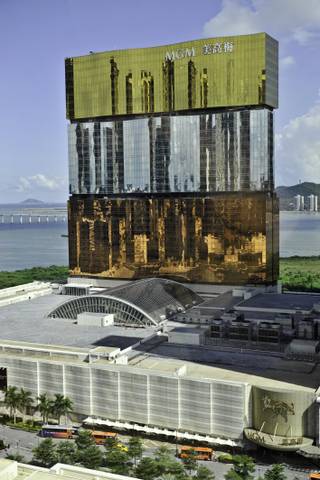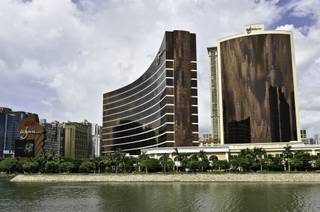Friday, Jan. 6, 2012 | 2 a.m.
Archives
More coverage
This has all the makings of a potentially tumultuous year for the gaming industry.
Union contracts expire for tens of thousands of Las Vegas casino industry workers this year, and if each side frames its position by the continuing recession, the negotiations may well be tense and drawn out.
Las Vegas casinos face still-exploding competition from Macau and Singapore, and gaming may spread to Miami and the Boston area.
Internet gambling may be legalized within Nevada, and lotteries may spread across the country and, among all of these events, will intensify the challenges and opportunities that exist for the Nevada economy.
“I don’t recall a time similar to this when there was so much on the horizon,” said Michael Pollock, managing director of Spectrum Gaming Group, an Atlantic City-based market research firm. “New projects, new states coming online, other states considering the legalization of gaming — clearly the industry is going to be significantly different five years from now than it is today, by huge margins.”
The most significant change in the gaming landscape has occurred in the Southern China gambling enclave of Macau, which last year recorded gross gaming revenue of $33.5 billion — 5 1/2 times the number that was likely generated along the once globally dominant Las Vegas Strip during the same time period. Indeed, the Las Vegas-based gaming operations of Sheldon Adelson and Steve Wynn earn about 75 cents of every dollar in revenue from their Asian investments.
Still, annual visitor volume to Southern Nevada could break 40 million for the first time, a significant figure given visitation had fallen from 39.2 million in 2007 to 36.4 million in 2009. The rebound has helped push up hotel room and occupancy rates as well as convention attendance and entertainment spending. Nonetheless, gross gaming revenues along the Strip are expected to be down significantly last year from their 2007 high of $6.83 billion, prompting a collection of financial and economic analysts to note that the nature of the Las Vegas gaming market has changed. The final revenue figures will be released later this year.
“Today’s visitors look a little bit different than the ones we saw in 2007,” said economist Stephen Brown, director of UNLV’s Center for Business and Economic Research, explaining that Southern Nevada tourists are staying longer while gambling less.
It’s in this context of an increasingly complex global gaming industry that Culinary Local 226 will try to negotiate new contracts for its more than 40,000 members at Strip and downtown gaming properties.
“That’s been kind of ignored in the talk about this new year,” said Roger Gros, a casino marketing consultant and publisher of casino industry magazines. “With things looking better, the union might be looking for some givebacks after not getting any increases for years. Management is going to say things might be looking better, but we’re under many of the same pressures here.”
Spectrum Gaming’s Pollock eyes the changing landscape and sees a hub-and-spoke network reminiscent of the strategy employed by the U.S. airline industry, which is also under great economic pressure. Much as the airline industry has primary and secondary markets that feed off one another, Pollock argues that global gaming and regional markets have increasingly come to coexist.
“You certainly can have multiple hubs and multiple spokes. Just look to the deep demographics in Asia and the money those demographics have to spend,” Pollock said. “Ultimately, that creates new markets that Las Vegas can exploit.”
Such a business model has been successfully executed by Caesars Entertainment, which has developed riverboat gambling throughout the Midwest and South and entices its loyal customers to visit the home of it all, Las Vegas. The theory is also employed internationally by MGM Resorts International and Las Vegas Sands, which work to lure their Macau customers to Las Vegas.
“The Las Vegas operators that have positions in other parts of the world have opportunities to market all of their properties, all of their offerings to the demographic,” Pollock said. “The success of one hub versus another does not mean that Las Vegas has lost its place in the gaming universe. It’s always going to be one of the major gaming centers in the world. It’s going to be very hard for other markets to duplicate what Las Vegas has built. It doesn’t mean that Las Vegas has gone away. It creates opportunity.”
That may very well be the case, but the experience of Macau and Singapore, the latter of which is expected this year to generate gross gaming revenue in excess of the Las Vegas total, have created something of an existential crisis for Southern Nevada.
“The center of the gambling universe is now Macau,” Gros said. “By sometime next year, Macau will have more gross gaming revenue than the entire United States. Asia is the place to be. If you’re going to be an international gaming company, you have to have properties in Asia.”




Join the Discussion:
Check this out for a full explanation of our conversion to the LiveFyre commenting system and instructions on how to sign up for an account.
Full comments policy